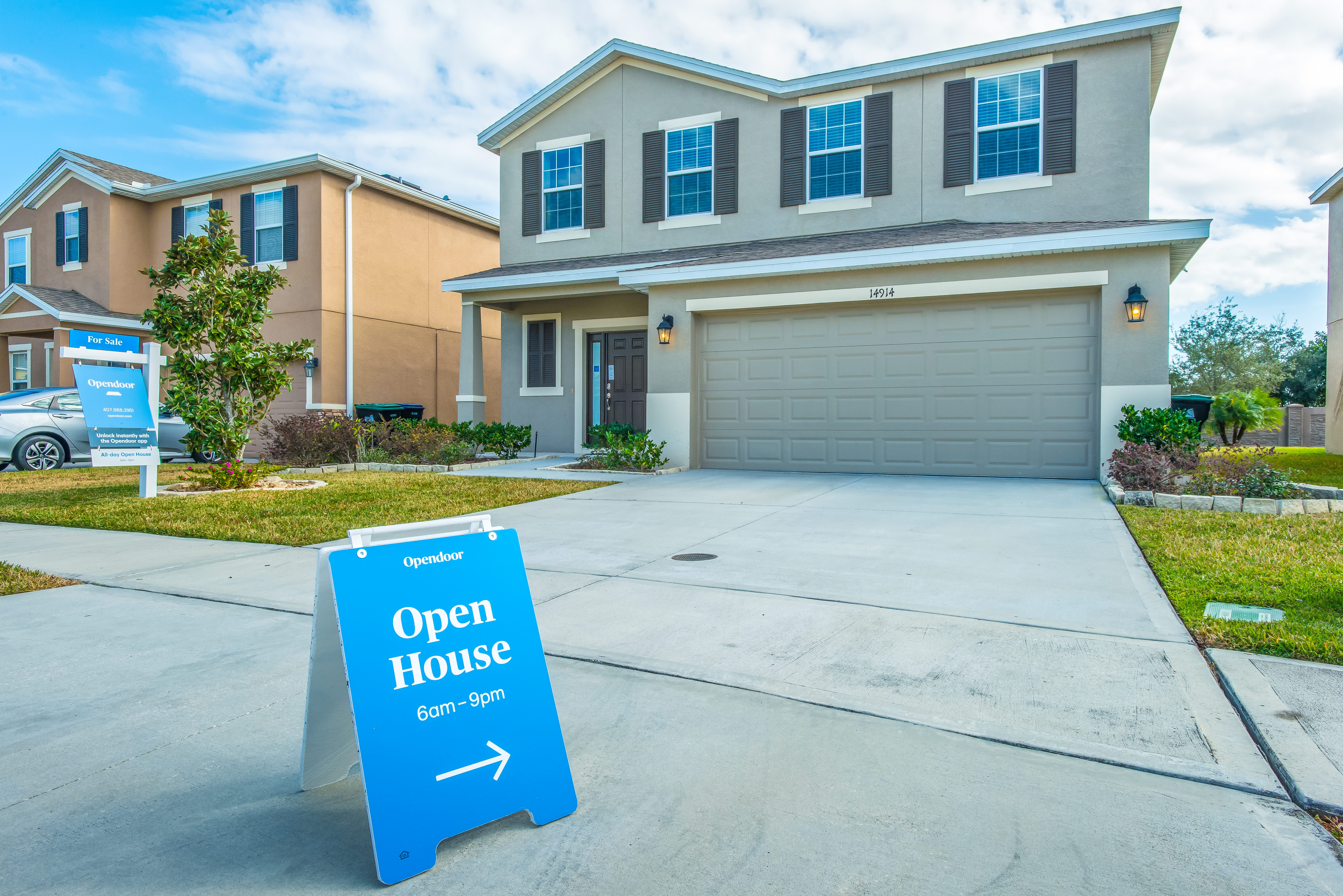Products You May Like
Zillow’s abrupt exit from the home-buying market is leading investors to see an opening for Opendoor.
A day after Zillow’s stock fell to a 16-month low, Opendoor shares soared as much as 19%. The San Francisco-based company, which went public late last year through a special purpose acquisition company, pioneered the instant-buying (or iBuying) market, allowing homeowners to sell their property online for cash, rather than going through an extended bidding, sales and closing process.
Opendoor is scheduled to report third-quarter earnings next Wednesday, so investors will get a clearer picture of how the company navigated the price volatility that caused Zillow to take a massive write-down, lay off 25% of its staff, and conclude that it could no longer justify buying and selling homes.
Eric Jackson, president of EMJ Capital and an Opendoor investor, equated Zillow’s departure from instant buying to the decision by a host of internet companies to give up on search two decades ago, eliminating Google’s biggest competitive threats.
“Z ceding the market to OPEN is like the equivalent of Yahoo/Ask Jeeves/Lycos/Excite giving up on search in 2001,” Jackson tweeted on Thursday. In a direct message to CNBC, he said Opendoor’s advantage is all about “data data data.”
Opendoor’s stock increase wiped out almost all its losses suffered earlier in the week, when it sank alongside Zillow. Investors are betting that the market is viable, but that Zillow, which grew up as an internet marketplace for home sales, was ineffective at operating in a much different business. Opendoor, on the other hand, was created specifically to buy and sell homes.
Opendoor is now up for the year and valued at close to $15 billion, while Zillow’s market cap has plummeted from a high of about $50 billion in February to just over $17 billion.
Some analysts were already touting Opendoor’s expertise before Zillow CEO Rich Barton said on Tuesday that his company has “been unable to accurately forecast future home prices at different times in both directions by much more than we modeled as possible.”
Zillow paused new purchases last month due to what it called a “backlog in renovations and operational capacity constraints.” The stock fell almost 10% on Oct. 18, the day of the announcement.
The instant buying market is particularly sensitive to price swings, labor costs and supply chain issues because participants have to be able to sell houses at a profit after factoring in remodeling and maintenance work. Zillow said that rising labor and materials costs tied to the pandemic, coupled with volatility in home prices, proved the company’s pricing model ineffective.
Opendoor rose 3.1% on the day Zillow announced its pause. Analysts at BTIG wrote in a report that Zillow “may have gotten ahead of itself on inventory,” while Opendoor appears to have moderated its activity “by dialing back purchases.”
“Rather than accelerating into softer conditions in Sept., OPEN appears to have adjusted,” wrote the BTIG analysts, who have the equivalent of a hold rating on the stock. They pointed to an industry report that showed Zillow picking up its buying in Phoenix in August and September at a rising price, while others in the industry slowed down.
In a note to clients on Wednesday, analysts at JMP downgraded Zillow even though “we expect iBuying to take share of residential real estate transactions” as the model goes more mainstream. They named Opendoor and smaller rival Offerpad as companies that could benefit.
Offerpad, which went public this year through a SPAC, rose 5.7% on Thursday though the stock is still down since it started trading in September.
Barton was asked by CNBC’s “Closing Bell” on Tuesday if Opendoor is making a mistake by sticking with iBuying.
“I can only speak to our calculus, I can’t speak to others’ calculus,” Barton said. “What this move is about for us, our calculus is different, is zooming back out to the larger seller problem,” he said, adding that Zillow is moving back into a more “asset-lite” model.
